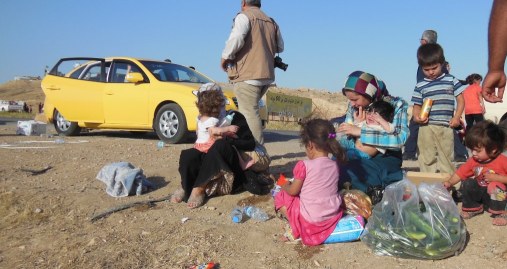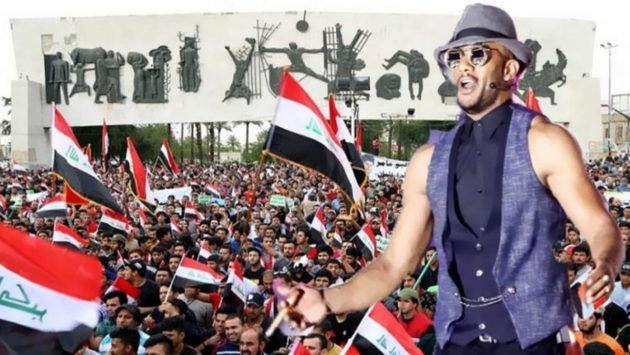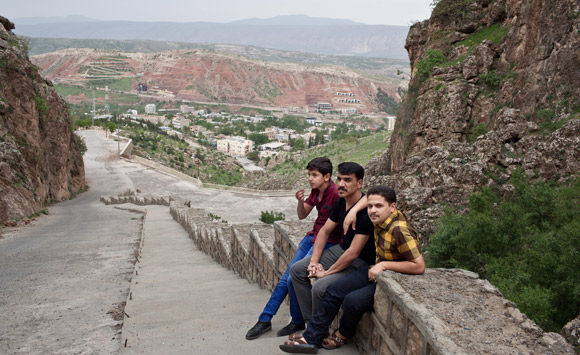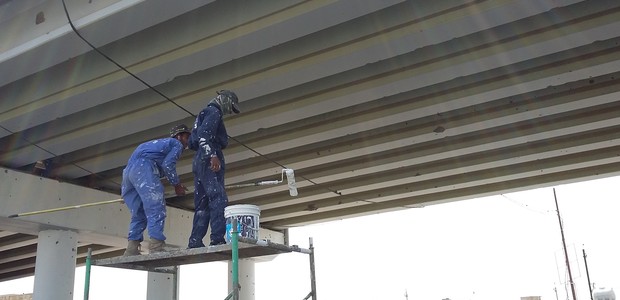More Travel Restrictions: Extremists Hold Civilians ‘Hostage’ in Mosul
The Islamic State group recently re-issued rules about who could and could not leave the city they control, Mosul. Fearing that they will be used as human shields by the extremists, many people have tried to leave, using fake medical certificates and the services of people smugglers. However the new rules are now making it almost impossible to get out of town.

Mosul woman Aisha al-Hayali was married to a police officer who was killed when extremists from the group known as the Islamic State took control of the her city in the middle of last year. Although she and her three children have been here since then, about ten days ago she finally decided she absolutely had to leave. She fears that soon the Iraqi military will begin an offensive to re-take Mosul from the extremists and she doesn’t want to be here when that happens – nor does she want her children to be here.
Unfortunately for al-Hayali she recently found out she may have left this decision too late. Because recently the Islamic State, or IS, group issued new instructions banning travel “outside of the land of the Islamic Caliphate” except in absolutely exceptional circumstances.
Al-Hayali had heard rumours and these were confirmed when her son returned from their local mosque with a leaflet that had been being distributed there and in other mosques.
“No one is allowed to travel from the house of Islam to the house of the disbeliever except when it is absolutely necessary and in the cases of ill health that cannot be treated in Mosul’s own hospitals,” the leaflet declared. “However retirees may leave to collect their pensions.”
Additionally, the note also said that anyone who does get permission to travel may not take their family members with them.
In fact these kinds of rules had already been in place in Mosul for some time. The IS group was most likely repeating them because of what was going on further south in the province of Salahaddin, where a major government offensive against the group was having success in Tikrit.
The IS group has now formed a special committee to assess the needs of locals who say they have to leave Mosul for medical reasons – this allows them to further tighten control over anyone trying to flee the city. According to one local doctor, the professional health personnel of Mosul had been liberal with their certifications of “ill health” – they had facilitated the departure of a lot of citizens this way. But now only the IS groups committee can make this decision.
In the Majmouah Thaqafiyah neighbourhood of Mosul, the part of the city traditionally known as the metropolitan transport hub, business has become very quiet after the IS group reissued their rules. A lot of the agencies here are now shuttered and the once bustling area is still.
Mosul taxi driver Hussein Thanoun has been transporting people in and out of Mosul for the past eight months. “Most of the travel agencies here used to issue fake medical reports to anyone wanting to leave town,” he says. “They also issued fake approvals signed by the IS group and they did this in cooperation with some of the members of the group, who took money to do it. But when the leaders of the group found out about this business they started getting stricter and punishing people. But,” Thanoun warns of something that many civilians in Mosul are very worried about, “the reality behind all these rules is that the IS group wants to use locals as fuel in the coming battle, that’s going to be waged here.”
There are still ways of getting out of Mosul, Thanoun insists. He still makes the risky journey to Baghdad and he says that you can leave town by bribing IS fighters or by negotiating with them. He says he often shows expired identity papers at checkpoints because a lot of the IS members working the checkpoints now are young and inexperienced. However even he says that the dangers of his work are increasing.
Desperate to find a way out of Mosul, mother-of-three, al-Hayali, has been dealing with drivers like Thanoun. The agencies are all closed, she told NIQASH, but she did meet one driver who offered to take her and her family out of town.
“He told me it would cost 1 million dinars [around US$830] per person. That was three times more than what they were charging before this last lot of rules was made public,” al-Hayali explains. “He also told me the road out to Baghdad was a long, tough one. He said that he could guarantee that we would be safe from attacks by any armed group – whether that was the IS group or any other group – but that nobody could guarantee our safety if coalition aircraft decided to shell the road.”
She had also considered hitching a ride on a supply truck – this was how one of her relatives had escaped the city. But he was a man and could claim he was an assistant driver. It would be impossible to explain what a woman was doing accompanying a truck driver on his voyage out of town.
Unless something changes, al-Hayali has now resigned herself to staying in her home. Like most of the other residents of Mosul she is trying to find out what is happening in Tikrit and, as much as possible, she’s also keeping an eye on what is happening just outside of Mosul, in case there are any troop movements that might indicate an attack is imminent. All of the residents of Mosul are well aware that the IS group don’t seem to have any plans to open a humanitarian corridor so families could leave the city. Nor do they seem to have any plans to put civilians in one place and fighters in another, as a way to protect women and children.
They also know about the level of destruction in places like Kobane and Aleppo in Syria and remain concerned about their fates.
Like many other families in Mosul, al-Hayali now has her suitcases packed. And like many others in Mosul, when she looks at those suitcases she can only hope that something will happen soon, to change things for the better.




